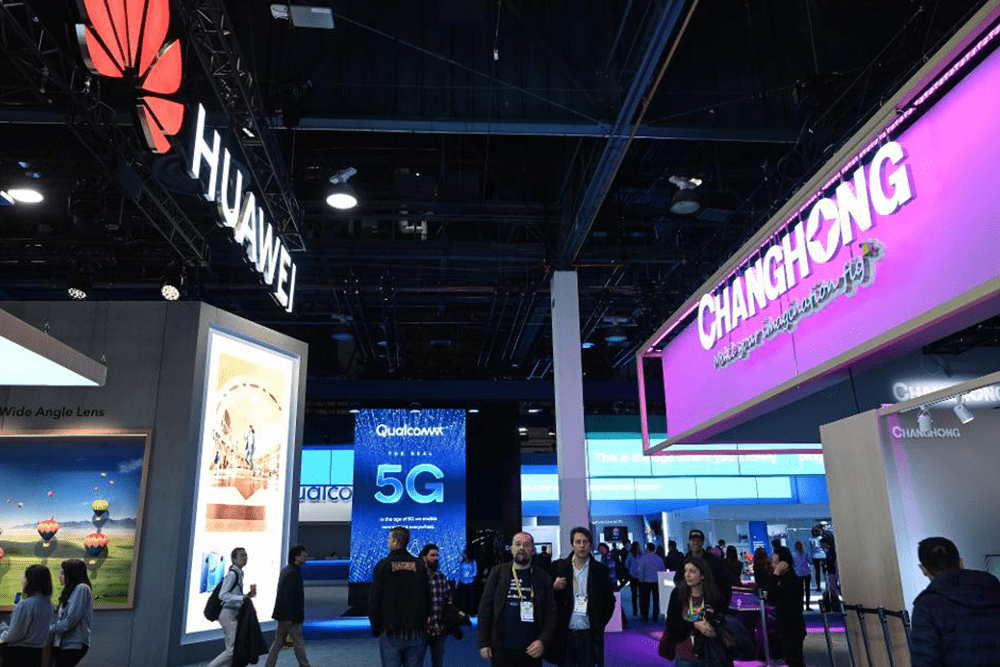7 Unmissable Innovations And The Latest Technology Trends At CES 2020
2 July 2021
CES 2020, the world’s largest consumer electronics show kicks off on January 7 and runs through to January 10 in Las Vegas. As usual, the world leaders in the development of home, leisure, sports, and travel technology will use the occasion to show off their latest gadgets, gizmos, and devices.

Amongst keynote announcements from the likes of Amazon, LG, and Toyota, as well as thousands of other exhibitors, the first CES of the 2020s will offer a glimpse into how we will be spending our spare and leisure time over the next decade. Trends which will be at the forefront are intelligent vehicles, health and fitness technology, 5G networks as well as anything involving data and analytics. I have spoken to Jean Foster, SVP of marketing and communications for the CTA – the organisers of CES – to learn more about the exciting things you can expect from CES 2020, which you can see here:
Here’s my rundown of some of the most interesting, exciting, or innovative products and services that you can expect to see at the show. With all the big names in technology (with the usual exception of Apple) putting all their effort into grabbing your attention, there’s likely to be something that you will want to have in your life.
Mind-reading tech
Visitors will get the chance to try NextMind’s far-out sounding brain-sensing wearable device, which it says is the first tool of its kind that allows devices to be controlled by thought alone. The light, head-mounded “non-invasive” device picks up signals as they cross the wearer’s visual cortex and can translate them in real-time into digital commands. Machine learning algorithms are used to decode the signals, and development kits are expected to go out early in 2020.
As space-age as it sounds, the potential practical uses for this kind of technology are staggering, from computers that we can operate with our minds, to restoring mobility to people with disabilities or injuries. If NextMind can really demonstrate that it can operate reliably and cheaply enough to become consumer technology, it could be a game-changer.
Seeing through your car
Tyre and mobility solution provider Continental will showcase its Transparent Hood that uses an array of for cameras to give drivers a clear view of the road directly in front of, and below the driver. The images from the cameras are “stitched” together using advanced image processing algorithms and relayed directly to displays in front of the drive. This has the effect of making the front-end of the car effectively “invisible” to the driver, and could potentially greatly reduce the number of accidents where damage is caused to vehicles during parking.
Advancing autonomous vehicles
RoboSense – the winners of this year’s CES Innovation Award for self-driving vehicle technology – will be demonstrating their Smart LiDAR Sensor. Self-driving cars will rely on LiDAR – basically radar with lasers instead of radio waves – to understand the environment and spot hazards as they come into range. Building this technology into solid-state MEMS devices will lower production costs and increase reliability, RoboSense say.
Another player in the LiDAR market, Blickfield, will demonstrate two new LiDAR sensors – the Cube and Cube Range, designed for near-field and distance environment detection, respectively. Both devices will be seen in action for the first time and should represent a step forward in intelligent vehicle performance.
Next-gen screen technology
If you are the sort of person who always wants to have the newest and best of everything, you’voe probably already found yourself looking at 8K TVs. One of the biggest drawbacks at the moment is the lack of content, but Samsung will be hoping their new screens that use AI to upscale content to 8K resolution will persuade early adopters it is time to take the plunge. Upscaling HD or 4K content means your expensive investment will still offer a noticeable improvement in picture definition, while you wait for broadcasters and streamers to catch up with the capabilities of your display.
Other TV innovations on show are likely to include roll-able screens – which we know have been on the agenda of LG, among others, for some time, but could be a step closer to becoming something we can actually buy.
Seeing further than ever
Billed as “next-generation” binoculars, the Nexoptic DoubleTake uses camera technology to let us see further and clearer than ever before – while also capturing super-sharp 4K video of whatever is in our field of view. Digital image-enhancing binoculars have been available for a while for those who can afford a hefty price tag, but this is an example of formerly high-end technological capabilities packaged and produced in an innovative way making its way into the mainstream. Likely to appeal to everyone from sports fans to lovers of the great outdoors.
Keeping your smart home safe
Another CES Innovation Award winner, this time in the smart home category, was this touch-sensitive “smart lock” from PassiveBolt. The device converts existing door locking systems to become touch-activated. It doesn’t rely on fingerprint technology, instead using electronic key technology. If the key – either on a fob, or stored digitally on a mobile device – is within sensor range, the device will unlock your front door with a simple touch. As well as providing convenience, it improves security by instantly alerting the homeowner through a mobile app of unauthorised attempts to gain entry.
Smarter health and wellness
Insurers Humana will be at CES 2020 to demonstrate and talk about the ways in which the health insurance industry is incorporating technology into improving the health of its customers. Telehealth, remote monitoring, and data analytics are all increasingly employed to improve the safety, quality of life, and independence of older people in the community. At the show, it will demonstrate the latest developments from Studio H, its in-house centre for the design and development of technology and machine learning applications designed to keep us happy and healthier for longer.
Other health-related breakthroughs on display for the first time will be the world’s most powerful hearing aid – the Oticon Xceed. The Xceed digitally analyses the air space around the wearer, scanning for soundwaves 100 times per second and applying advanced signal processing technology to enhance the perception of speech and other sounds.
for a more in-depth discussion on the biggest future technology trends, cheque out my other conversation with Jean Foster from CTA:
Related Articles
Dreamforce 2025: Why I’m Excited About Salesforce’s Agentic Enterprise Revolution
By now, “smart” versions exist of just about every home appliance, gadget and gizmos we can think of. However, manufacturers continue[...]
The Top 5 Technology Trends For 2026
By now, “smart” versions exist of just about every home appliance, gadget and gizmos we can think of. However, manufacturers continue[...]
Dreamforce 2025: Why I’m Excited About Salesforce’s Agentic Enterprise Revolution
By now, “smart” versions exist of just about every home appliance, gadget and gizmos we can think of. However, manufacturers continue[...]
Robots And AI Are Rewriting The Future Of Surgery
By now, “smart” versions exist of just about every home appliance, gadget and gizmos we can think of. However, manufacturers continue[...]
Space, AI, And The Future Of Human Potential
By now, “smart” versions exist of just about every home appliance, gadget and gizmos we can think of. However, manufacturers continue[...]
Invisible Intelligence: Nokia’s Networks With A Sixth Sense
By now, “smart” versions exist of just about every home appliance, gadget and gizmos we can think of. However, manufacturers continue[...]
Sign up to Stay in Touch!
Bernard Marr is a world-renowned futurist, influencer and thought leader in the fields of business and technology, with a passion for using technology for the good of humanity.
He is a best-selling author of over 20 books, writes a regular column for Forbes and advises and coaches many of the world’s best-known organisations.
He has a combined following of 4 million people across his social media channels and newsletters and was ranked by LinkedIn as one of the top 5 business influencers in the world.
Bernard’s latest book is ‘Generative AI in Practice’.










Social Media